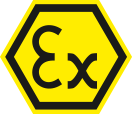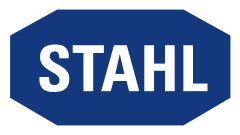
R. STAHL, a leading manufacturer and technologist in Explosion Protection has been appointed by the International Electrotechnical Commission (IEC) to organise the IEC/TC 31 Conference in Waldenburg from 25th March 2019 to 5th April 2019. This is the first time a manufacturer has entrusted with the responsibility to conduct the IEC/TC 31 Conference. There the technical committee will draft the new international explosion protection standards and update the existing ones. Alongside the ATEX directives, which apply throughout the EU, these IEC standards set out essential requirements for manufacturers of electrical and non-electrical equipment that are designed for use in hazardous areas and for operators of systems installed in these areas. TC 31 members hail from 40 different nations across the globe.
For many years now, R. STAHL has devoted itself to participate in numerous national and international committees and panels focused on achieving the IEC's objective of establishing explosion protection standards globally. The manufacturer draws on its exceptional strength and prowess in the development and production of innovative, explosion-protected products. R. STAHL puts this expertise to good use to ensure that, from a technical perspective, new and existing regulations and standards can always be implemented effectively in practice whilst striving to ensure that test procedures are rigorous, safe, and as efficient as possible. At the convention, the company will contribute by appointing eight of its senior most experts to various working groups tasked with the responsibility to amend the existing explosion protection standards for electrical equipment and installations.
The Chairman's Advisory Group (CAG) will also be present at this conference to oversee the progress. This group draws up all proposals regarding standards and working groups; these proposals are then voted on in the TC 31's plenary session. Membership to the CAG is limited to convenors of the sub-committees, maintenance teams and working groups. CAG participants from R. STAHL are Manfred Kaiser, Brad Zimmermann, Falk Thürmer and Otto Walch. The standards drawn up by the TC 31 are used at IEC level by the IECEx system for conformity assessment. Prof. Dr. Thorsten Arnhold, in charge of Technology at R. STAHL, has been the IECEx system chairman since 2014. In addition, due to R. STAHL's extensive expertise it belongs to a small number of companies that, in collaboration with TÜV Rheinland, are authorised to provide specialist personnel active in the field of explosion protection with training in line with the IECEx competency certification scheme (CoPC).
IEC seeks to standardise explosion protection across the globe
We are exposed to various hazards in our environment that can cause an unexpected explosion either from refineries or grain mills and these are mostly fatal with massive damage to people and property. Many air/gas mixtures, as well as fine dust particles in the air, can be ignited by sparks. These sparks can originate from a large number of different ignition sources. By taking certain precautions, these hazards can be eliminated. Following some serious accidents, predominantly in the mining and chemical industries, industrialised nations started putting national standards and regulations in place roughly one hundred years ago to ensure that effective protection against explosions was provided. These rules and regulations were standardized in the European Union from 1994 onwards.
Outside of the EU, however, there are still numerous different standardisation systems in operation, with specific certification requirements for individual countries or economic regions. If, for example, a machinery produced by a German manufacturer that is suitable for using in hazardous zones is supplied to the Americas or countries such as India, China, Japan or South Korea, this machinery will have to pass a plethora of different tests. And its appropriate certification must be obtained locally to be approved for usage in hazardous environments in these regions. This is mostly inconvenient, costly and time-consuming. To combat this, the IECEx organisation, under the umbrella of the International Electrotechnical Commission (IEC), has been working hard since 1996 creating a standardised certification system for equipment and systems destined for use in hazardous areas globally. The meeting of the IEC's TC 31 technical committee in Waldenburg, has been scheduled to address this issue.
Press contact:
R. STAHL
Kerstin Wolf
Am Bahnhof 30
74638 Waldenburg
T +49 7942 943 4300
F +49 7942 943 404300
E presse@stahl.de



